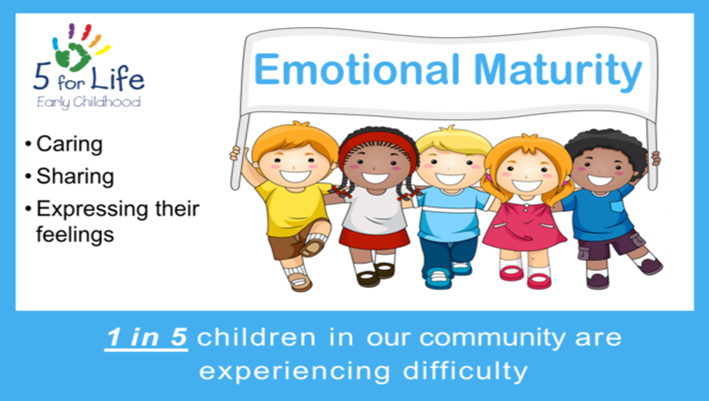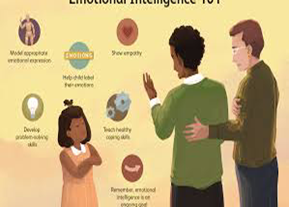by Harsimar Kaur
The best way to explain in simple terms is a tendency to express emotions without restraint or disproportionately to the situation. This EDI scale has been chosen today by the author, to discover its effects and related context in order to study children’s different ages. This aspect is regarded as important in different ways. Firstly, it helps a child to form relationships with peers, parents, in neighbourhood. Secondly, a child can easily overcome his extreme feelings of sadness, or disappointment by building resilience. Third and foremost part is, where a child if shows anger or frustration regarding an individual. The desires must be expressed clearly and efficiently and in much accepted sociable way. It has been found out by the researchers that a child’s brain is sensitive in areas of developing emotions to other person. Their emotions need to be regulated timely by the caregivers (i.e. parents or siblings). The caregivers need to tell the children how to look onto their feelings and show them to the another person around him/her (Emotional Maturity, 2021).
Their are two factors that had made the emotional maturity vulnerable to an extent. First it would be, environment. Environment plays a substantial role in developing one’s behaviour, especially of a child at a very early stage. It’s about the family who guides them and makes their path to success. Second factor determining is the genetics. From parents, it’s already inherited by the individual that how to react on the upcoming situations and appear with thoughts. An instance is, if mother appears to be short tempered, it is easy to judge that her child must be short tempered too.
Resilience Factors:
The another major aspect related to emotional maturity would be how to control the content. It had been described in three following ways:
- Emotion regulation – Becoming more mindful of our emotions, allowing ourselves to experience all emotions as they come, without passing judgment or trying to avoid or suppress them.
- Sense of Mastery – this can be achieved by enhancing the power of our competence in the society. It is the things we are good at and that we enjoy doing.
- Sense of Relatedness – this content can be enhanced by helping out others, involvement in meaningful social groups, undertaking responsibilities and duties at home or school etc (2018).

School District Kindergarten 27 (by wave 7) :
The changes have been observed throughout the year after wave 2 ( 2004 – 2007 ) and different observations have been recorded in wave 7 in kindergarten children in a school district by the year from 2004 to 2019.
- The vulnerability trends of EDI scale for emotional maturity gets in significant increase year by year in metropolitan Vancouver areas.
- It was from 11.7% in wave 2 and the increment went up to by 6% i.e. 17.7% in wave 7.
- It also had been figured out that families and children are experiencing much higher rates of susceptibility to emotional maturity (School district 27, 2021).
Vulnerable children controlling emotional maturity :
It is expected in simplest terms that this scale can be controlled by making these steps:-
- A child should learn to identify its emotions
- Let go of the shame and keep your thoughts in front of caregivers or friends.
- Setting a boundary that someone should understand the worth of owing you.
- Taking the responsibility of what’s happening into your life whether in good or bad terms.
- Before approaching to someone, notice their behaviour and analyze it.
- Making a person as role model or following its guided right path (Lamothe, 2020) .

The way this steps can help out any individual from coming out of the vulnerability of emotional maturity as the every single point if noticed carefully goes through the path of self. Self means psychologically, looking up to ourselves always. Whether it would be self love, self confidence, self esteem, self efficacy, self regulation and many other aspects. The child will learn the importance of owing her emotions and will respect them in order to get value from the other persons otherwise the personality can endanger itself by differences of id, ego, superego.
References
School district no. 27. SD NO. 27 CARIBOO CHILCOTIN. (n.d.). Retrieved December 17, 2021, from https://www.sd27.bc.ca/
Lamothe, C. (2020, March 30). Are you emotionally mature? Healthline. Retrieved December 17, 2021, from https://www.healthline.com/health/mental-health/emotional-maturity#tips-for-development
Emotional maturity . Emotional maturity domain – education.sa.gov.au. (n.d.). Retrieved December 17, 2021, from https://www.education.sa.gov.au/sites/default/files/aedc-sa-key-curriculum-connections-emotional-maturity.pdf
Factors in resilience. Inviting Resilience. (2018, October 30). Retrieved December 17, 2021, from http://invitingresilience.ca/factors-in-resilience/

Recent Comments